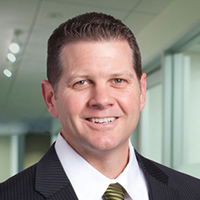Financial Fixes to Make after the Pandemic
Now is a good time to reflect on what the COVID-19 pandemic has done to your finances (and surprise, there may be some good news here) and to your priorities themselves. After giving it some thought, here’s what you should do going forward.


Profit and prosper with the best of Kiplinger's advice on investing, taxes, retirement, personal finance and much more. Delivered daily. Enter your email in the box and click Sign Me Up.
You are now subscribed
Your newsletter sign-up was successful
Want to add more newsletters?

Delivered daily
Kiplinger Today
Profit and prosper with the best of Kiplinger's advice on investing, taxes, retirement, personal finance and much more delivered daily. Smart money moves start here.

Sent five days a week
Kiplinger A Step Ahead
Get practical help to make better financial decisions in your everyday life, from spending to savings on top deals.

Delivered daily
Kiplinger Closing Bell
Get today's biggest financial and investing headlines delivered to your inbox every day the U.S. stock market is open.

Sent twice a week
Kiplinger Adviser Intel
Financial pros across the country share best practices and fresh tactics to preserve and grow your wealth.

Delivered weekly
Kiplinger Tax Tips
Trim your federal and state tax bills with practical tax-planning and tax-cutting strategies.

Sent twice a week
Kiplinger Retirement Tips
Your twice-a-week guide to planning and enjoying a financially secure and richly rewarding retirement

Sent bimonthly.
Kiplinger Adviser Angle
Insights for advisers, wealth managers and other financial professionals.

Sent twice a week
Kiplinger Investing Weekly
Your twice-a-week roundup of promising stocks, funds, companies and industries you should consider, ones you should avoid, and why.

Sent weekly for six weeks
Kiplinger Invest for Retirement
Your step-by-step six-part series on how to invest for retirement, from devising a successful strategy to exactly which investments to choose.
From dining out to vacation travel, many Americans have started to resume their pre-pandemic lifestyles – and the spending that accompanies those lifestyles. According to Schwab’s Modern Wealth Survey, nearly half (47%) of Americans polled back in February (before the rise of the Delta variant) were looking to get back to living and spending like they were before the COVID-19 pandemic and a quarter (24%) said they were eager to indulge to make up for lost time.
But we’re also seeing a healthy balance – even as people make plans to get out and spend, they also want to nurture newfound savings and investing habits developed over the last year. Nearly two-thirds (64%) of Americans surveyed said they were savers in 2020, as opposed to spenders. Hoping to double down on new savings habits in post-COVID life, 80% planned to be bigger savers than spenders in the year ahead, with nearly half (45%) planning to save more money and a third (34%) intending to reduce their debt once the pandemic has subsided.
If your own spending and savings outlook has shifted during the pandemic, how can you make sure you will stay on a healthy financial path going forward? Start by taking these steps:
From just $107.88 $24.99 for Kiplinger Personal Finance
Become a smarter, better informed investor. Subscribe from just $107.88 $24.99, plus get up to 4 Special Issues

Sign up for Kiplinger’s Free Newsletters
Profit and prosper with the best of expert advice on investing, taxes, retirement, personal finance and more - straight to your e-mail.
Profit and prosper with the best of expert advice - straight to your e-mail.
Revisit your goals
To determine how to fit new priorities into your financial plan, start by identifying what is most important to you. Not all goals are created equal, so make a list of the top three things you’d like to do over the next year or so, along with your top three longer-term goals. Then, commit to saving toward each while resisting the urge to splurge on other things that may be less important to you.
As you revisit your goals, you may find that your priorities have changed over the last year. Many people are finding that they have different feelings about what matters to them most, with increased importance on mental health (69%) and the health of their relationships (57%).
Assess your preparedness for the unexpected
Schwab’s survey revealed that over half of Americans were financially impacted by the pandemic. Against this backdrop, it’s important to assess your financial preparedness for the unexpected. As you plan for the future, consider building emergency savings and contributing to a health savings account, if you’re eligible for one.
You may also want to ensure that you have adequate insurance coverage. Sound insurance planning can help avoid a financial catastrophe. Health insurance is a must, and it’s also wise to confirm that you have adequate automobile and homeowners insurance. Explore disability, life and long-term care insurance and consider whether adding coverage is right for you.
Put your plan in writing
After a year of focusing on one day at a time, we’re now able to look ahead and plan for tomorrow. Take this as an opportunity to review where you are — and be honest with yourself about your progress toward your goals.
Simply writing things down is an important step. In fact, 54% of Americans who have a written financial plan feel “very confident” about reaching their financial goals, while only 18% of those without a plan feel the same level of certainty. However, only a third (33%) of Americans have a plan in writing, despite planning tools and advice being more accessible than ever.
Whether you need to reduce spending and debt, up your savings or just refine the details, once you know where you are and where you need to go, you’ll have a sense of direction. Then you can take necessary action steps and commit to moving forward.
Investing involves risk including loss of principal. Diversification strategies do not ensure a profit and do not protect against losses in declining markets.
The information here is for general informational purposes only and should not be considered an individualized recommendation or personalized investment advice. The type of securities and investment strategies mentioned may not be suitable for everyone. Each investor needs to review an investment strategy for his or her own particular situation before making any investment decision.
©2021 Charles Schwab & Co., Inc. (“Schwab”). All rights reserved. Member SIPC.
Profit and prosper with the best of Kiplinger's advice on investing, taxes, retirement, personal finance and much more. Delivered daily. Enter your email in the box and click Sign Me Up.

Joe Vietri has been with Charles Schwab for more than 25 years. In his current role, he leads Schwab's branch network, managing more than 2,000 employees in more than 300 branches throughout the country.
-
 Dow Adds 1,206 Points to Top 50,000: Stock Market Today
Dow Adds 1,206 Points to Top 50,000: Stock Market TodayThe S&P 500 and Nasdaq also had strong finishes to a volatile week, with beaten-down tech stocks outperforming.
-
 Ask the Tax Editor: Federal Income Tax Deductions
Ask the Tax Editor: Federal Income Tax DeductionsAsk the Editor In this week's Ask the Editor Q&A, Joy Taylor answers questions on federal income tax deductions
-
 States With No-Fault Car Insurance Laws (and How No-Fault Car Insurance Works)
States With No-Fault Car Insurance Laws (and How No-Fault Car Insurance Works)A breakdown of the confusing rules around no-fault car insurance in every state where it exists.
-
 For the 2% Club, the Guardrails Approach and the 4% Rule Do Not Work: Here's What Works Instead
For the 2% Club, the Guardrails Approach and the 4% Rule Do Not Work: Here's What Works InsteadFor retirees with a pension, traditional withdrawal rules could be too restrictive. You need a tailored income plan that is much more flexible and realistic.
-
 Retiring Next Year? Now Is the Time to Start Designing What Your Retirement Will Look Like
Retiring Next Year? Now Is the Time to Start Designing What Your Retirement Will Look LikeThis is when you should be shifting your focus from growing your portfolio to designing an income and tax strategy that aligns your resources with your purpose.
-
 I'm a Financial Planner: This Layered Approach for Your Retirement Money Can Help Lower Your Stress
I'm a Financial Planner: This Layered Approach for Your Retirement Money Can Help Lower Your StressTo be confident about retirement, consider building a safety net by dividing assets into distinct layers and establishing a regular review process. Here's how.
-
 The 4 Estate Planning Documents Every High-Net-Worth Family Needs (Not Just a Will)
The 4 Estate Planning Documents Every High-Net-Worth Family Needs (Not Just a Will)The key to successful estate planning for HNW families isn't just drafting these four documents, but ensuring they're current and immediately accessible.
-
 Love and Legacy: What Couples Rarely Talk About (But Should)
Love and Legacy: What Couples Rarely Talk About (But Should)Couples who talk openly about finances, including estate planning, are more likely to head into retirement joyfully. How can you get the conversation going?
-
 How to Get the Fair Value for Your Shares When You Are in the Minority Vote on a Sale of Substantially All Corporate Assets
How to Get the Fair Value for Your Shares When You Are in the Minority Vote on a Sale of Substantially All Corporate AssetsWhen a sale of substantially all corporate assets is approved by majority vote, shareholders on the losing side of the vote should understand their rights.
-
 How to Add a Pet Trust to Your Estate Plan: Don't Leave Your Best Friend to Chance
How to Add a Pet Trust to Your Estate Plan: Don't Leave Your Best Friend to ChanceAdding a pet trust to your estate plan can ensure your pets are properly looked after when you're no longer able to care for them. This is how to go about it.
-
 Want to Avoid Leaving Chaos in Your Wake? Don't Leave Behind an Outdated Estate Plan
Want to Avoid Leaving Chaos in Your Wake? Don't Leave Behind an Outdated Estate PlanAn outdated or incomplete estate plan could cause confusion for those handling your affairs at a difficult time. This guide highlights what to update and when.